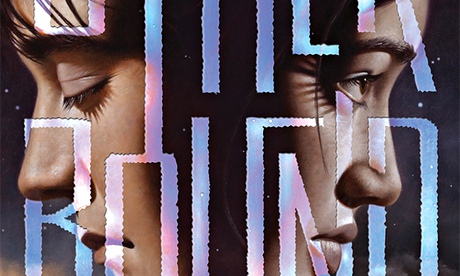
Here's a secret: I was glad when I was diagnosed with autism.
It's not about wanting to be autistic. It's about that moment of sharp relief, feeling vindicated, almost.
The diagnosis is a scrap of paper in the world that tells you: "This is not your fault. You are not lazy, you are not spoiled or incompetent, you are not simply difficult. Dropping out of school: not your fault. Extreme food restrictions: not your fault. Weird movements, easily overloaded, going mute when stressed: not your fault. Over-the-top obsessions, being an outsider, desperately needing structure and predictability: not your fault."
When you're 14 years old and depressed, wracked with guilt because you've always been the smart one: those three words are powerful. Black and white. Official letterhead. A team of psychologists. Not your fault.
There's relief. There's freedom. There's the sense of things clicking into place, a reason for all that's plagued you. But what comes after?
On the one hand, I clearly remember thinking that I wouldn't be like those people I'd heard about, who either denied or celebrated their disabilities. I would be Rational, and Realistic and Reasonable. I'd never claim I wasn't broken – because I was.
On the other hand, as much as I rejected all the disability rights talk as a teenager, a lot of it evolved naturally without my realizing it. When people asked me to stop flapping my hands during dinner, I challenged them: Why should I? This makes me comfortable, and it doesn't hurt you, so what's the purpose in stopping? So I'll appear normal? I'm at home; I shouldn't have to pretend.
When people told me to adapt and learn and overcome, I asked: Why? Why should the person struggles with change be the one who adapts, when it's supposed to come so naturally to the rest of you? Can't I just be who I am?
Those years of pushing, adapting, trying, then failing before my diagnosis had been hell. I refused to go back. Instead, I got to know myself; slowly, at my own pace.
I'd always been a reader. Stories and characters offered a glimpse into what people were like and how I ought to act, even if I never consciously realized it. Now, I took up the keyboard myself. I wrote about superheroes, vampires, space smugglers, awkward teenagers, jewel thieves, take-no-shit policewomen. Slipping into these characters' skins taught me even more about people — and about me.
It's difficult being comfortable with yourself, but it is even more difficult when you're disabled. It means knowing your limits intimately. It means running into a brick wall for your efforts and licking your wounds in the wake of your failure.
For me, it means learning what acceptance truly means. I've pinpointed my struggles; I've explored ways around them. But the more I embrace both my talents and my limitations, the more people latch onto only one or the other. Some have an image of who I should be — this smart, talented, enthusiastic girl — and when I tell them I couldn't always be that girl, they call it a waste. They call me a waste.
Others wax rhapsodic about how I prove autism is no excuse for laziness or failure. I'm an inspiration, they say; that I overcame my disability. Me? I just gape. After all my years of difficulty, the last thing I want is for people to use my experiences to put down others who struggle. What is so inspirational about accepting your limitations? When did I overcome anything? I never overcame. I incorporated.
It's been over 10 years since my diagnosis. I've cursed and hated it. Other times, I'm as glad as I was the day I received it. Autism has opened worlds to me. Even the drawbacks have taught me countless skills: from coping to empathy, from clear communication to self-care. I learned that limitations do not equal broken. I came to understand that disability is simply another facet of human experience. I embraced the disability movement, and all that comes with it. Community. Ingenuity. Advocacy. Connection.
Autism has let me dive headfirst into all of my talents — my art, my writing, my reading and all my silly-serious obsessions. It let me smear charcoal across paper and form portraits so spot-on they brought people to tears. It let me race my fingers across the keyboard and create words and worlds that ended up on bookshelves worldwide. Autism let me explore me. So why shouldn't I be glad?
Corinne's book Otherbound is available from the Guardian bookshop.

